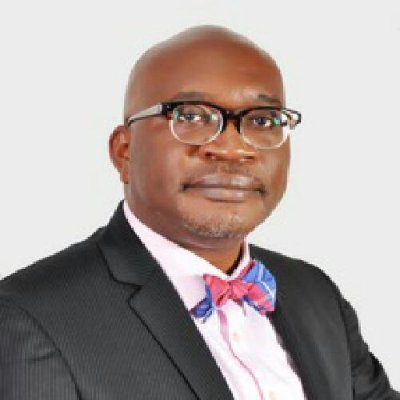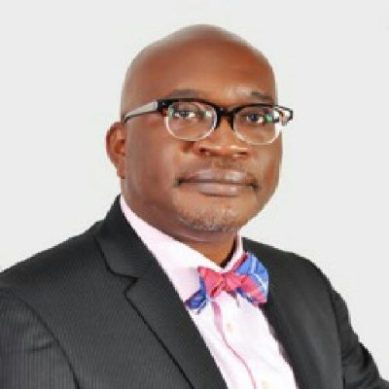Democracy & Governance
Funds For Development? -By Soji Apampa

The most recent Global Financial Integrity report (2014) ranks Nigeria, with an estimated $157 billion (lost 2003-2012), as the leading source of illicit financial outflows from sub-Sahara Africa. Nigerians now need to think seriously about how to get their money back from a corrupt national elite.
The President of the Federal Republic of Ngeria has just sacked his National Security Adviser and relieved the service chiefs of their jobs. For some, this move was long overdue, and for others it simply adds to the trepidation of the wait, as he still seems to be playing his cards very close to his chest. Who will be next? Why is he not appointing that middle buffer layer called ministers, with whom we can do business and escape his direct gaze? Will he stop at sacking them or as one expects, will a probe also follow in due course to recover the much needed funds for development? Some sources speak of a massive complex in Wuse II, Abuja paid for in cash by one of the service chiefs, with money they are sure was meant for the prosecution of the war against Boko Haram – a prime example of the illicit use of public funds. A probe of the National Security “industry” which blossomed during the Jonathan administration is surely a must if we go by the sheer size of budgets stolen or wasted in the name of preserving Nigeria’s territorial integrity. According to the report of the Thabo Mbeki High Level Panel (HLP) on Illicit Fund Flows in Africa published in February 2015, Africa loses about US$20bn in such illicit flows on an annual basis – funds that could have been used for develoment. The most recent Global Financial Integrity report (2014) ranks Nigeria, with an estimated $157 billion (lost 2003-2012), as the leading source of illicit financial outflows from sub-Sahara Africa. Nigerians now need to think seriously about how to get their money back from a corrupt national elite.
Nigeria is not on course to fully meet the MDGs. Our governance problems of not being able to mobilise enough funds for development, not being able to effectively prioritise spending when we do have funds and not being able to efficiently use what we have, let’s us down, time and again. Corruption is a manifestation of these governance failures and one of the ways we allow our corrupt elite to take away the funds meant for development in Nigeria.
World leaders will gather in Addis Ababa, Ethiopia, from July 13-16, 2015 to discuss how to finance the ambitious plan to end poverty and achieve food security everywhere on earth by the year 2030 through newly defined Sustainable Development Goals (SDGs). SDGs replace the Millennium Development Goals (MDGs), which expire in 2015. In the new paradigm, governments are acknowledging that they will not have the resources to finance such an agenda and a discussion around other sources, such as the private sector, has also been going on. The logic being that there are models of operation that can deliver profits to the private sector and the desired social impacts to the people in the hope that the alignment of incentives is more sustainable than governments just doling out aid. Dambisa Moyo of Zambia has long argued that what Africa needs to develop is trade not aid and that the aid we have received has done more harm than good, which she christened “Dead Aid”. Nigeria is not on course to fully meet the MDGs. Our governance problems of not being able to mobilise enough funds for development, not being able to effectively prioritise spending when we do have funds and not being able to efficiently use what we have, let’s us down, time and again. Corruption is a manifestation of these governance failures and one of the ways we allow our corrupt elite to take away the funds meant for development in Nigeria.
One should be curious about why such a repositioning of the facts is being attempted at this point. In Nigeria, it would be hard to steal public funds, hide drug money or benefit from falsified commercial documents without an element of corruption creeping in. The attempt to reclassify corruption in Africa must therefore be instrumental, but to what ends?
According to the Thabo Mbeki’s HLP report, besides proceeds of corruption, proceeds of criminal activity such as drug trafficking is another form of illicit fund flows, but the largest portion according to it (at least on an aggregate level across Africa) is from proceeds of questionable commercial activities, such as trade misinvoicing (over-invoicing of exports and under-invoicing of imports for example) – the report also speaks of the abuse of transfer pricing mechanisms, and various tax dodges. It is curious that panel would imagine the likes of the Abacha loot as corruption but fuel subsidy scams in the oil and gas sector as private sector commercial schemes yielding illicit fund flows. This is perhaps how the report could conclude that 65 percent of illicit flows are from commercial activities, 30 percent from criminal activities and only 5 percent from corruption. This significantly de-emphasises corruption and takes the spotlight away from the public sector actor and fully onto the private sector as the source of such illicit flows, along with pure criminal operations. One should be curious about why such a repositioning of the facts is being attempted at this point. In Nigeria, it would be hard to steal public funds, hide drug money or benefit from falsified commercial documents without an element of corruption creeping in. The attempt to reclassify corruption in Africa must therefore be instrumental, but to what ends?
Oil prices are depressed and with the Iran nuclear deal, prices are likely to remain depressed for the foreseeable future. Where will funds for development come from? Nigerians should fix their governance and demand their money back… President Buhari’s methodical approach to sniffing out what needs to change and doing it must be accompanied by the quest for restitution of what has been taken from Nigerians in order for the public to fully appreciate the hard work he is doing behind the scenes.
Money stolen from Nigeria (whether by corruption, criminal or commercial activities) often ends up in other countries. After a tedious process, the money may be identified, frozen and a repatriation request made, as in the case of the Abacha loot. After such funds are repatriated, how do we ensure it is not “re-exported” or wasted again? The countries agreeing to the repatriation want to attach conditionalities (to the return of stolen goods in their possession!). Is this justified? Switzerland insisted that the projects the Abacha loot would be applied to must be monitored by civil society, however by the time the money arrived in 2006, the government claimed it had already spent it in anticipation in the 2004 budget, but did not mark the funds as Abacha loot, making monitoring it effectively almost impossible after the fact. Oil prices are depressed and with the Iran nuclear deal, prices are likely to remain depressed for the foreseeable future. Where will funds for development come from? Nigerians should fix their governance and demand their money back. A side event at the Financing for Development Conference in Ethiopia, hosted by the Open Society Justice Initiative, and supported by other organisations such as Integrity Nigeria, will be encouraging just that in a session titled, “We Want Our Money Back: Stolen Assets Recovery and Resources for Post-2015 Development Agenda”. President Buhari’s methodical approach to sniffing out what needs to change and doing it must be accompanied by the quest for restitution of what has been taken from Nigerians in order for the public to fully appreciate the hard work he is doing behind the scenes.




















